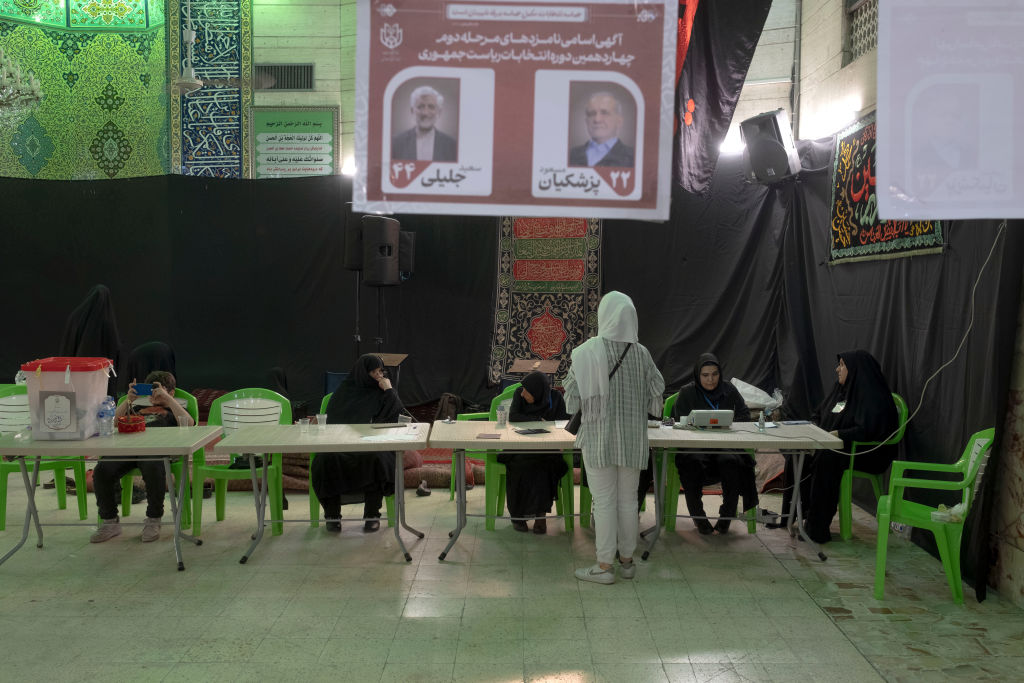When Ebrahim Raisi’s helicopter crashed on 19 May, killing all on board, it was hardly foreseeable that the heart surgeon turned reformist politician Masoud Pezeshkian would replace him as Iran’s new president. Names of the main hopefuls seeking to snatch the vaunted position had remained unchanged for years, illustrative of the stagnant political landscape. Pezeshkian was not one of them.
Yet in less than two months, Pezeshkian is expected to be in New York, addressing the United Nations General Assembly. Signals he has sent since the humdrum election haven’t smacked of tangible reforms away from the dominant conservatism, but the world may still hear something new from an Iranian leader for the first time in years.
If Iran’s 9th president follows the same trajectory he trialled in the presidential debates, his message at the UN could potentially defy the usual oratory routine heard at the podium from the Islamic Republic. The paean to military might and rhetorical grandstanding about adversarial states Israel, the United States and Britain might be absent from Pezeshkian’s September speech.
Tehran’s traditional partners certainly hope bilateral relations will be reinforced. But major European leaders left a curious silence following the election, refusing to extend congratulations, even when everyone understood such missives weren’t supposed to be an endorsement of a process that was neither free nor fair.
It might be an indication of cautious optimism, or the fear of a premature outreach to a lesser-known technocrat who may end up evolving into an ideologue.
With the former foreign minister Javad Zarif, the mastermind of the 2015 nuclear deal known as the Joint Comprehensive Plan of Action, being the central figure of Pezeshkian’s campaign, and the president-elect’s disclaimer that he would commit to patching up the impaired relations with the West, his rise to power should instinctually have been acknowledged.
The silence on Pezeshkian’s victory was enigmatic, contrasted with the readiness of many Europeans to extend messages of condolence after Raisi died. Despite Raisi’s record of widespread human rights abuses and the unbridled violence against women he authorised as president, Germany’s Olaf Scholz, Italy’s Sergio Mattarella, Poland’s Andrzej Duda, Portugal’s Luís Montenegro, and Finland’s Alexander Stubb made up an unlikely choir of elite European politicians who condoled Iranians after the helicopter crash.
The gestures implied that the world was extending an olive branch to a cornered, insulated country so that it could join the international community anew. Following the snap elections, however, the same leaders didn’t express contentment that the deceased president was succeeded by someone who opposed his polarising statecraft. It might be an indication of cautious optimism, or the fear of a premature outreach to a lesser-known technocrat who may end up evolving into an ideologue.
Pezeshkian isn’t a prodigy. Still, he has a track record of centrism, had served in the Islamic Republic’s first pro-reform administration as minister of health between 2001 and 2005, and has run on a platform of pragmatism in foreign policy. Iranians, including his supporters, are under no illusion about his faculties. But his mandate to reverse Iran’s miserable status requires external impetus to make headway.

What is called “democratic capital” by economists Torsten Persson and Guido Tabellini is the exact phenomenon that was gestating when the JCPOA was inked: business with democracies undermines autocratic attitudes in repressive states. Iran was shedding its isolationist mantle, and its civil society was being enfranchised.
Even supreme leader Ali Khamenei, who had set his hand to the nuclear deal, was unhappy with the outcome. He realised how a diplomatic accord with concrete economic dividends was denting his monopoly, and he couldn’t acquiesce to his absolute power slipping away as he watched.
Pezeshkian would be facing an uphill battle to recapture that era of foundational reform that Khatami pioneered.
Too often analysis of Iranian power structures simplifies its politics through declarations such as “the president is so powerless he can’t do anything on his own”. This assumption betrays Iran’s complexities. In the not-so-distant past, the concept of free speech was first added to the official discourse post-revolution under President Mohammad Khatami, the same way the taboo status of direct talks with the United States was dismantled by President Hassan Rouhani.
In 1998, Khatami travelled to New York to heap praise on Abraham Lincoln and acknowledge the sophistication of American people, who he said, had widely read Alexis de Tocqueville’s Democracy in America. In 2003, he submitted a “grand bargain” package to the White House to permanently settle a range of stubborn sticking points, only to be spurned by George W. Bush.
Pezeshkian would be facing an uphill battle to recapture that era of foundational reform that Khatami pioneered. The culture of conservatism is today more deep-seated, and the stakeholders of radical Islamism are substantially more affluent. The Islamic Revolutionary Guard Corps is the parallel government now, whereas under Khatami, it was just an ancillary army.
Still, jaded Iranians witnessed first hand how the monster of morality police can be unleashed daily and strangle them. They saw in action how foreign policy can be contorted to fecklessly submit the national interest to powerful dictators in Moscow and Beijing in the name of resisting imperialism. This populace is more upbeat about the relative improvement of its fortunes now.

